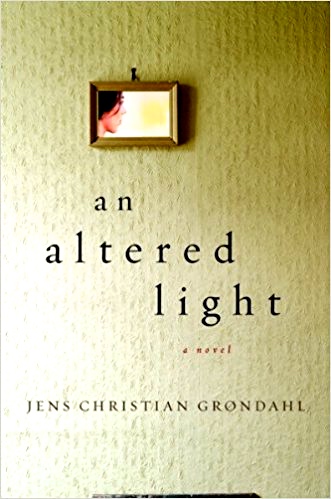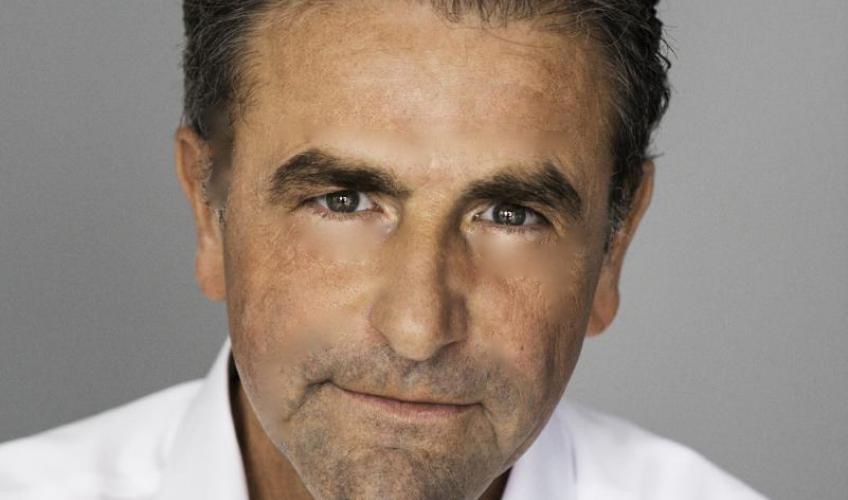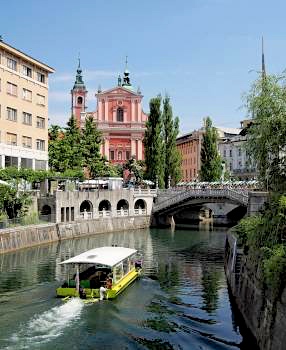Note: This novel, published in English in 2005, was SHORTLISTED for the IMPAC Dublin Award, the biggest prize in the literary world.
“Irene Beckman is to be divorced…That’s all she knows. She’s no longer one with that life. How long has it been like that? She doesn’t know, doesn’t know any more. There’s no more knowing. There is her own life, but she doesn’t know it. Not yet. There is no ‘we.’ Her unknown self. That is what there is. And the way ahead. Unknown.”
 A 56-year-old lawyer in Copenhagen, Irene Beckman discovers that after more than thirty years, she is being divorced. Her husband Martin has fallen in love with another woman, and the “light” by which she views her life has now been “altered.” Every aspect of her existence, which she has taken for granted, has changed, and she must now figure out who she really is. In the hands of Grondahl, this age-old story takes on new life as Irene reminisces about the past and how she met Martin when she was a 17-year-old au pair in Paris, tells about her parents and their relationship, mourns for her unknown twin brother who died at birth, shares stories about her children, explores her present life, and tries to plan for the future. Her “journey to self-discovery” takes on added importance when her mother, facing surgery from which she thinks she may not recover, gives Irene a journal from her own early years. In it she tells of her meeting with a Jewish cellist during the war, his escape to Sweden, and her marriage to his best friend. The secrets that pervade people’s lives—her mother’s, her own, Martin’s—Irene learns, are as much a part of their relationships and later lives as the events they share with others. Ultimately, each person’s view of selfhood, personal origins, and ultimate destiny is viewed through a combination of events kept secret and events shared.
A 56-year-old lawyer in Copenhagen, Irene Beckman discovers that after more than thirty years, she is being divorced. Her husband Martin has fallen in love with another woman, and the “light” by which she views her life has now been “altered.” Every aspect of her existence, which she has taken for granted, has changed, and she must now figure out who she really is. In the hands of Grondahl, this age-old story takes on new life as Irene reminisces about the past and how she met Martin when she was a 17-year-old au pair in Paris, tells about her parents and their relationship, mourns for her unknown twin brother who died at birth, shares stories about her children, explores her present life, and tries to plan for the future. Her “journey to self-discovery” takes on added importance when her mother, facing surgery from which she thinks she may not recover, gives Irene a journal from her own early years. In it she tells of her meeting with a Jewish cellist during the war, his escape to Sweden, and her marriage to his best friend. The secrets that pervade people’s lives—her mother’s, her own, Martin’s—Irene learns, are as much a part of their relationships and later lives as the events they share with others. Ultimately, each person’s view of selfhood, personal origins, and ultimate destiny is viewed through a combination of events kept secret and events shared.
 Though the novel is introspective and analytical, it is also firmly grounded in realistic detail, which keeps Irene’s in-depth exploration of her feelings from appearing to be self-indulgent or sentimental. Dry humor is injected into the narrative through Irene’s friend Ursula, a flamboyant psychologist who gives parties in which various guests lay bare their souls. “Here everything was displayed for public deliberation—divorces, vibrators and the horrors of the world. Maybe it was yet another price [to be paid], in addition to loneliness…” Characters at these gatherings speak in jargon-filled pronouncements, with one person described as “using words you can switch on and insert in your ear.” Eventually, Irene wonders if she has “just spent the past week “overproblematizing” her own ambivalence to the point of total dysfunctionality? Instead of rolling up her sleeves and getting on with the grief process?”Ultimately, Irene’s search for truth expands beyond her immediate crisis, and she sets off on a journey to Austria and Yugoslavia and an exploration of the larger issues of identity caused by the Holocaust and its aftermath. The close, personal focus on Irene’s character broadens, and the novel becomes more plot-based, the latter action connected to Irene’s domestic problems through the theme of identity.
Though the novel is introspective and analytical, it is also firmly grounded in realistic detail, which keeps Irene’s in-depth exploration of her feelings from appearing to be self-indulgent or sentimental. Dry humor is injected into the narrative through Irene’s friend Ursula, a flamboyant psychologist who gives parties in which various guests lay bare their souls. “Here everything was displayed for public deliberation—divorces, vibrators and the horrors of the world. Maybe it was yet another price [to be paid], in addition to loneliness…” Characters at these gatherings speak in jargon-filled pronouncements, with one person described as “using words you can switch on and insert in your ear.” Eventually, Irene wonders if she has “just spent the past week “overproblematizing” her own ambivalence to the point of total dysfunctionality? Instead of rolling up her sleeves and getting on with the grief process?”Ultimately, Irene’s search for truth expands beyond her immediate crisis, and she sets off on a journey to Austria and Yugoslavia and an exploration of the larger issues of identity caused by the Holocaust and its aftermath. The close, personal focus on Irene’s character broadens, and the novel becomes more plot-based, the latter action connected to Irene’s domestic problems through the theme of identity.

Ljubljanica River, Slovenia, formerly part of Yugoslavia, to which Irene travels late in the novel.
Those who enjoy novels of self-analysis will love this one, which is leavened with dry humor but which also makes important points about how much we can expect a relationship to bear when the individuals involved do not truly know or reveal their “inner selves.” But it also makes the point that a relationship must not completely subsume the individuals, that there are private places and events which are also important, and that one must always be ready to begin again, if necessary. Every aspect of this novel, every detail, helps keep the novel focused, thematically. Irene’s jogging along the same path each morning parallels her life. The references to mass graves in the Balkans and ethnic cleansing parallel later scenes regarding the Holocaust. Her journey to Vienna and Yugoslavia parallel journeys taken by other characters at other times. When she eventually picks up a hitchhiker who does not speak her language, she feels a remarkable kinship with him. “For you everything is still undecided, for me it’s already too late,” she thinks. But then she realizes, “It is still the same beginning. Life is ceaselessly altering, and there isn’t a place in the world where we belong. Beginnings have no arrival, no final destination. Hope is homeless, but indomitable.”
ALSO by Grondahl: OFTEN I AM HAPPY
Photos, in order: The author’s photo is from https://forfatterweb.dk/
The photo of Ljubljanica River in Slovenia, formerly part of Yugoslavia, is from https://en.wikipedia.org/wiki/Ljubljana
